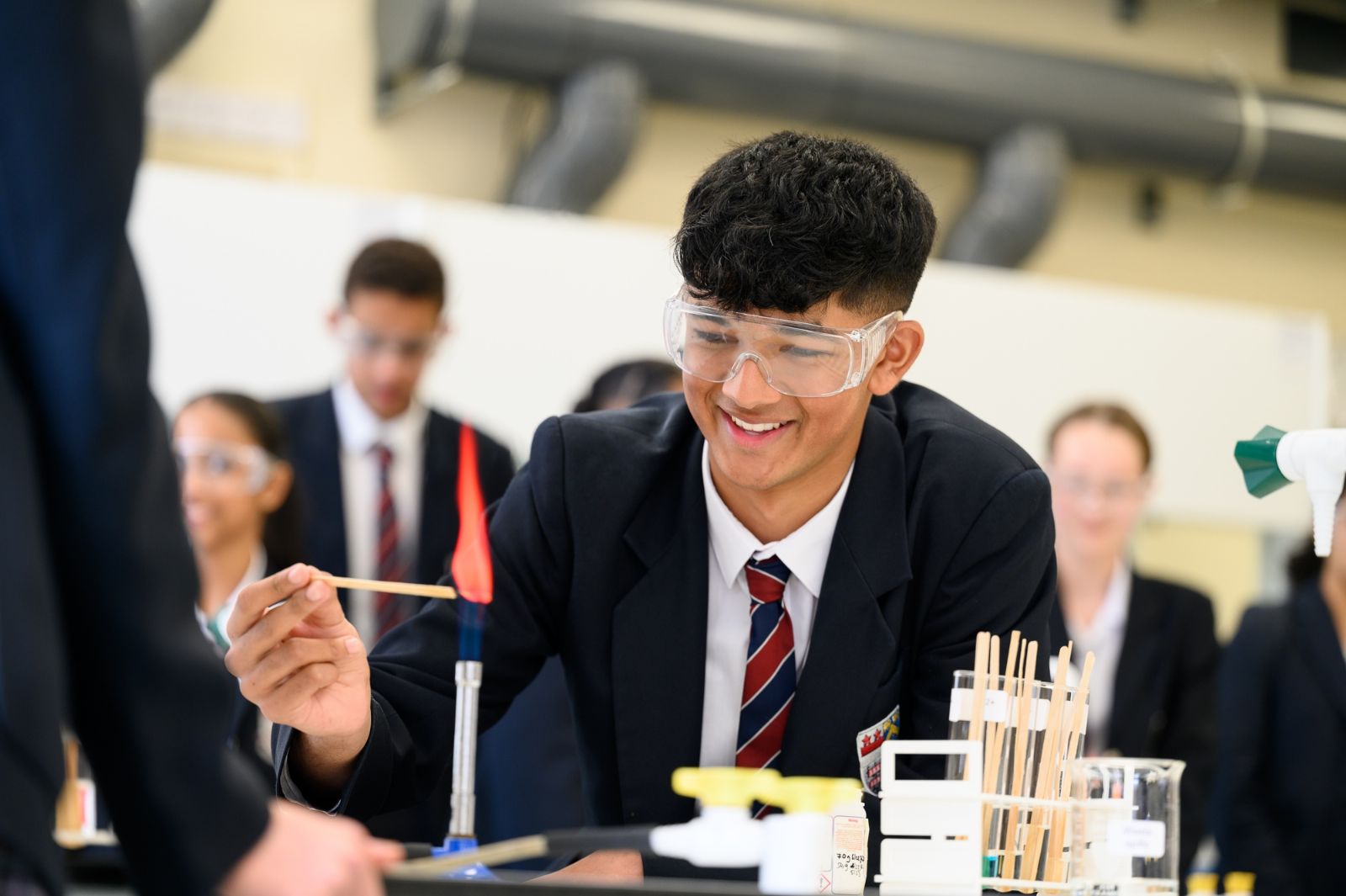Science
Our Head of Combined Science is Dr F Ryland
Curriculum
Please use the menu on the right to explore Biology, Chemistry and Physics as individual subjects.
Third Form
In the Third Form, pupils are taught in form groups with the curriculum providing four periods per week in the form of two double periods (2 x 80 minutes). The programme covers the units:
- Working Scientifically (the scientific method)
- Cells
- Structure and function of body systems
- Reproduction
- Particles and their behaviour
- Elements, atoms and compounds
- Reactions
- Acids and Alkali
- Forces
- Sound
- Light
- Space
During the Third Form all pupils develop their skills as scientists. They work towards gaining the Solihull Science Award at the end of the year.
Shell Form
In the Shell Form pupils are taught in mixed teaching groups with the curriculum providing 5 double periods per fortnight. The programme covers the units:
- Health and lifestyle
- Ecosystem processes
- Adaptation and inheritance
- The Periodic Table
- Separation techniques
- Metals and acids
- The Earth
- Electricity and magnetism
- Energy
- Motion and pressure
In the summer term all Shell Form pupils complete the Bronze CREST award during their science lesson. The projects are STEM based and the pupils can investigate areas they are interested in.
Our Science programme is a very practically-based course. Lessons are usually taught in one of four dedicated Key Stage 3 Science rooms with linked preparation facility and dedicated technicians.
Lower Fifth and Upper Fifth
Following options in Fourth Form, pupils can opt to either do separate sciences (3 GCSEs) or Combined Science (2 GCSEs). Pupils are taught by 3 specialist teachers (Biology, Chemistry and Physics). The course is hands on and practical.
The programme covers the units:
- Cells and organisation
- Disease and bioenergetics
- Biological responses
- Genetics and reproduction
- Ecology
- Atomic, bonding and moles
- Chemical reactions and energy changes
- Rates, equilibrium and organic chemistry
- Analysis and the Earth’s resources
- Energy and energy resources
- Particles at work
- Forces in action
- Waves and magnetism
Science is revolutionising the world around us, be it understanding and coming up with solutions to the climate crisis, developing artificial intelligence or providing the means to combat viruses or cancer. It is also a wonder in its own right, enabling us to appreciate and marvel about the natural world.
At Solihull, we believe that Science is an experiential activity. We are fortunate enough to have excellent and well equipped laboratories where students get the chance to do practical work several times a week. There is a wide range of science clubs and competitions for pupils throughout the school, along with a variety of trips and lectures.


